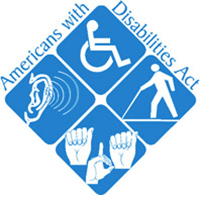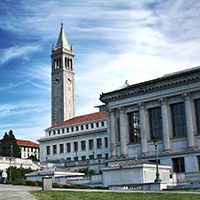Effects of DSRP Shutdown
by Heather Zhang
UC Berkeley is a diverse community attended by students of all ages and places. Many are fortunate to call this place their home. However, it is becoming less of a home for some more than others .
From the start, UC Berkeley has been one of the few schools to offer a program for disabled students. According to the Hechinger Report, 17% of disabled college students receive help, compared to disabled high school students with a percentage of 94%. Implemented in 1990, the American Disabilities Act (ADA) requires colleges and universities to have a disability office, but this office can often be neglected due to lack of staff or funds.
 The Disabled Students’ Readiness Program (DSRP) offered staff to help perform daily living tasks, such as brushing teeth or going to bed, to those who qualify as Department of Rehabilitation (DOR) consumers. Cynthia Chen (‘16), a Cal graduate who lives with Spinal Muscular Atrophy, is bound to her wheelchair and received help through the DSRP program. According to Chen, “[t]his program provided a multitude of services, including hosting cooking workshops to acclimate students to living on their own, walking blind students to their classes, transferring wheelchair-bound students to/from the toilet, and sending all students hordes of job applications during their Senior year.”
The Disabled Students’ Readiness Program (DSRP) offered staff to help perform daily living tasks, such as brushing teeth or going to bed, to those who qualify as Department of Rehabilitation (DOR) consumers. Cynthia Chen (‘16), a Cal graduate who lives with Spinal Muscular Atrophy, is bound to her wheelchair and received help through the DSRP program. According to Chen, “[t]his program provided a multitude of services, including hosting cooking workshops to acclimate students to living on their own, walking blind students to their classes, transferring wheelchair-bound students to/from the toilet, and sending all students hordes of job applications during their Senior year.”
Since 2014, the DSRP has been going through many different changes. Due to lack of funds and poor prioritization, the DSRP has been cut, leaving many students without assistance. This sudden change has prompted backlash throughout the student community, prompting discussion and igniting petitions to bring the program back.
 The grants from the TRIO program were misused for “funding most of the Specialist half of DSP,… serving almost 2,000 students when it turns out the grant was really only supposed to support the lowest economic class DSP student and capped at around 260 students,” explains Kevin Shields, the former DSP coordinator. In addition, these grants from the federal government have become harder to obtain because of the economic crisis that the U.S. is experiencing, causing lower budgets and new decisions for the DSP to make regarding staffing. According to Shields, this has led to “faculty angry with the lack of flexibility at DSP getting accommodations and students upset their needs were not being met.” Despite Shields’ efforts in presenting his new plans to improve the DSRP program, not everyone in the staff agreed with him. Instead of trying to save the program, it became easier for the DSP to completely drop it. In fact, Shields points out that “[o]ut of 12 colleges in California with WAIV programs, only UC Berkeley chose to eliminate the program.”
The grants from the TRIO program were misused for “funding most of the Specialist half of DSP,… serving almost 2,000 students when it turns out the grant was really only supposed to support the lowest economic class DSP student and capped at around 260 students,” explains Kevin Shields, the former DSP coordinator. In addition, these grants from the federal government have become harder to obtain because of the economic crisis that the U.S. is experiencing, causing lower budgets and new decisions for the DSP to make regarding staffing. According to Shields, this has led to “faculty angry with the lack of flexibility at DSP getting accommodations and students upset their needs were not being met.” Despite Shields’ efforts in presenting his new plans to improve the DSRP program, not everyone in the staff agreed with him. Instead of trying to save the program, it became easier for the DSP to completely drop it. In fact, Shields points out that “[o]ut of 12 colleges in California with WAIV programs, only UC Berkeley chose to eliminate the program.”
This change affects many students and faculty. Chen emphasizes the importance of a support system for high school students transitioning to college. UC Berkeley was known for the birthplace of disabled rights, yet “students who require attendant care will not take the risk to move to a new, unfamiliar environment without a proper support system in place, especially after being taken care of by their parents all their life.” This limits students from receiving a world-class education and making the most of their potential.
Shutting down the DSRP calls for many issues to be solved in the community. As a school known for its diversity, supporting everyone and their needs comes at a price.
